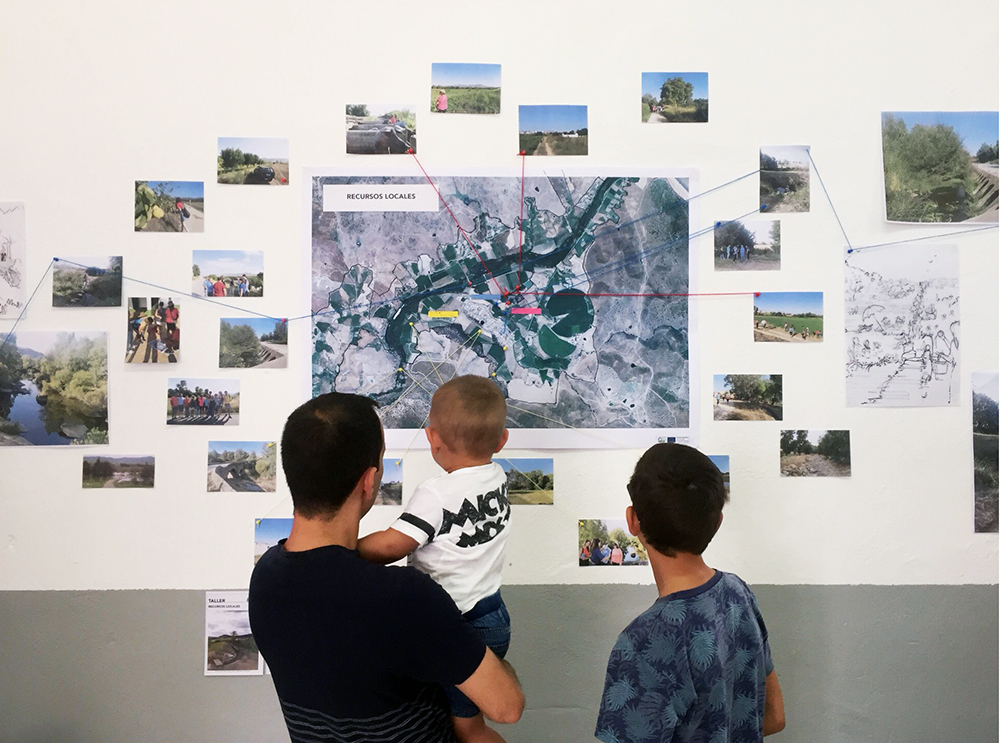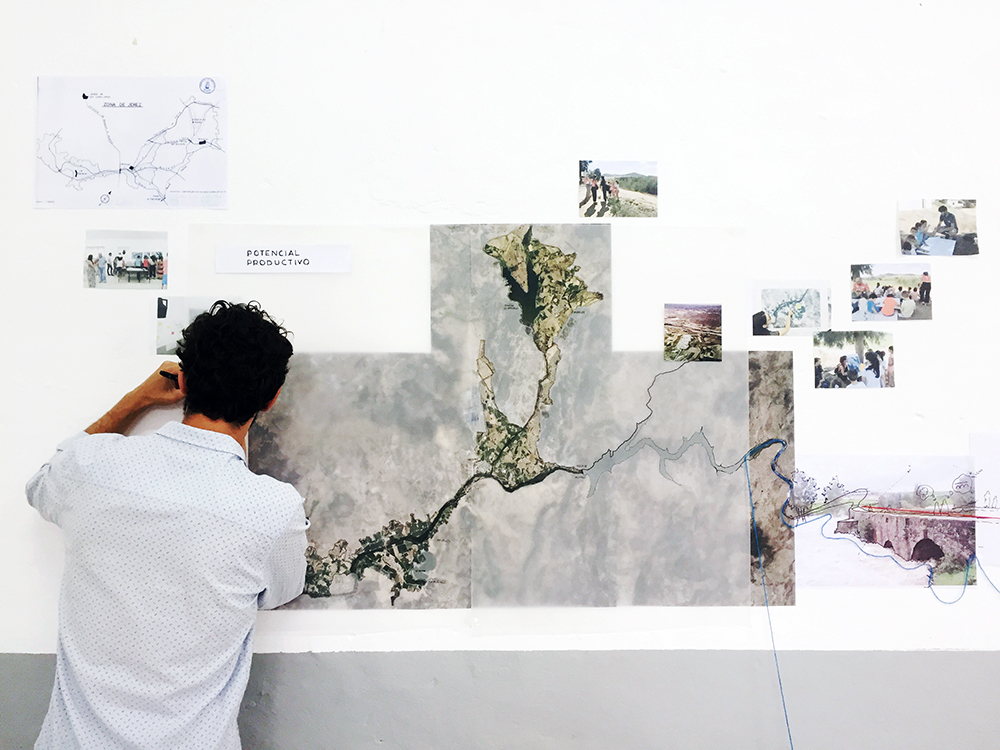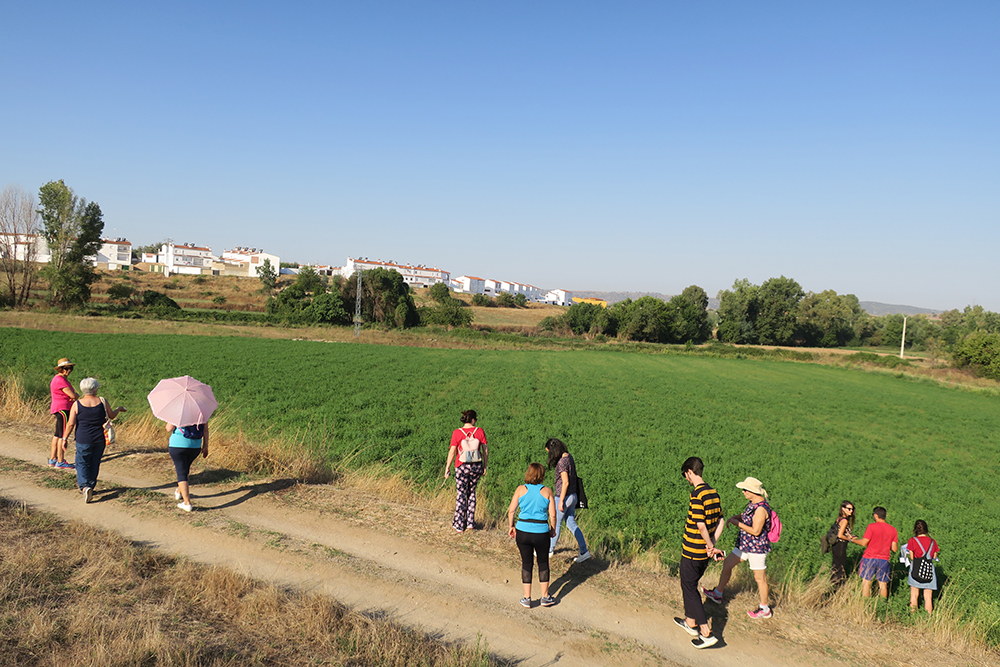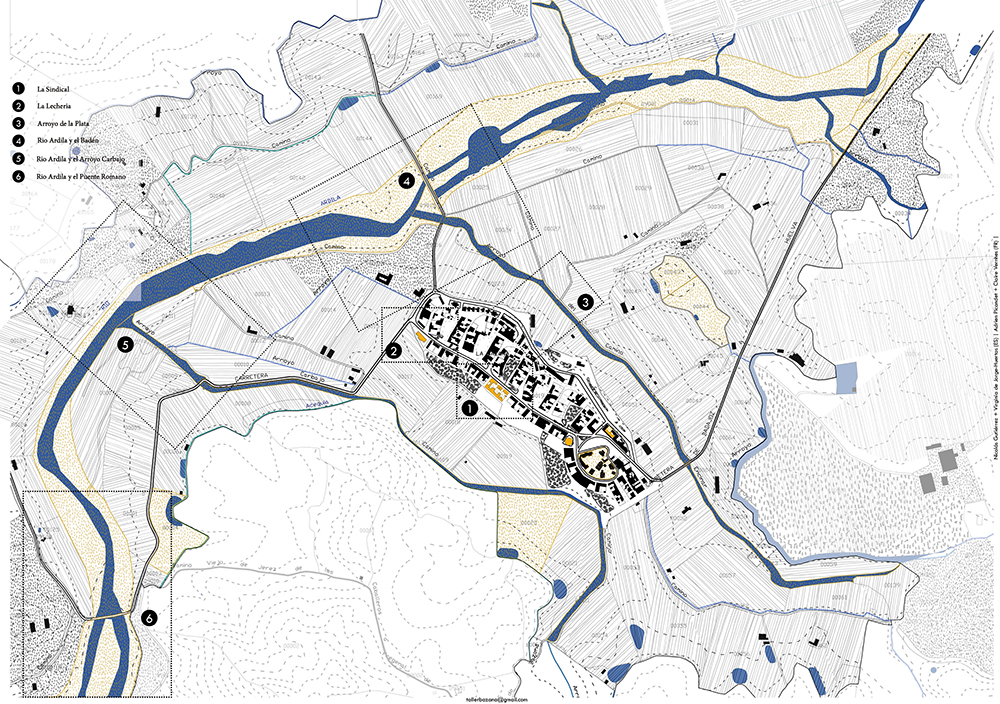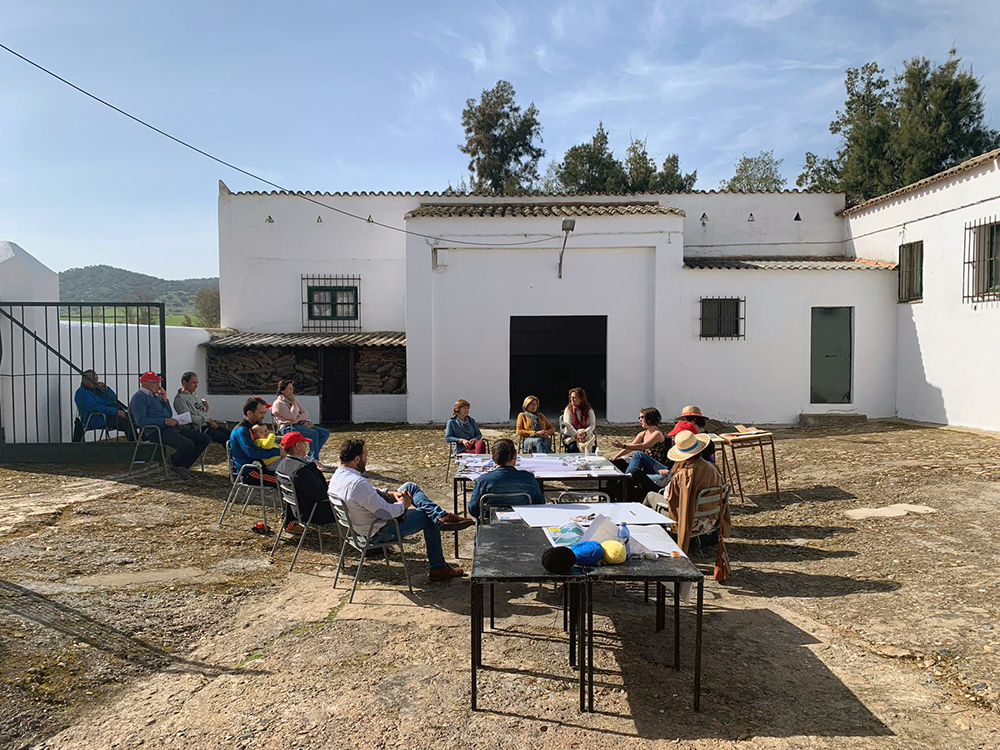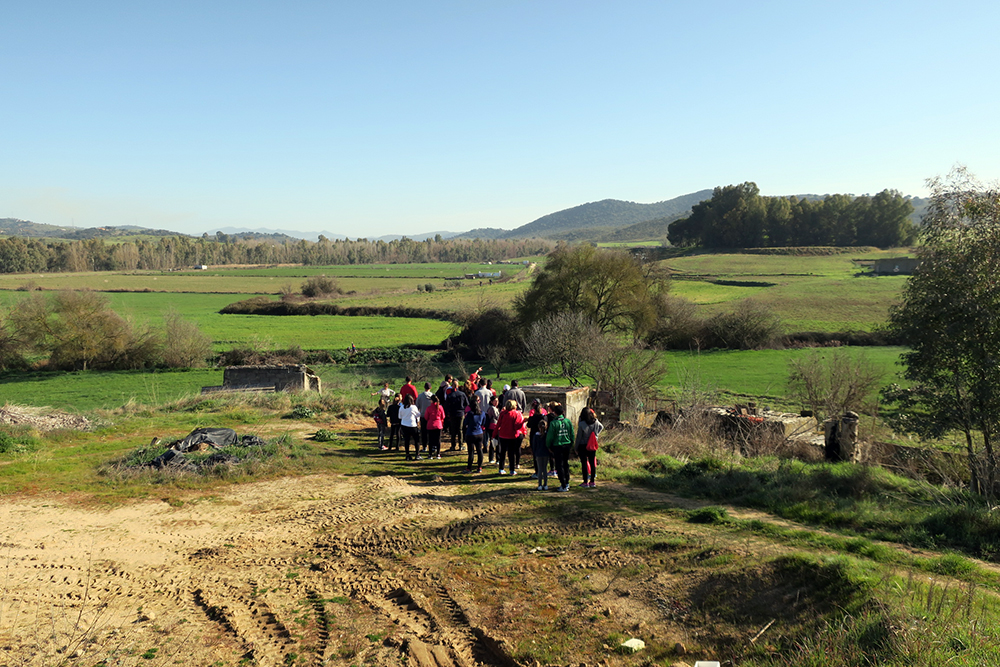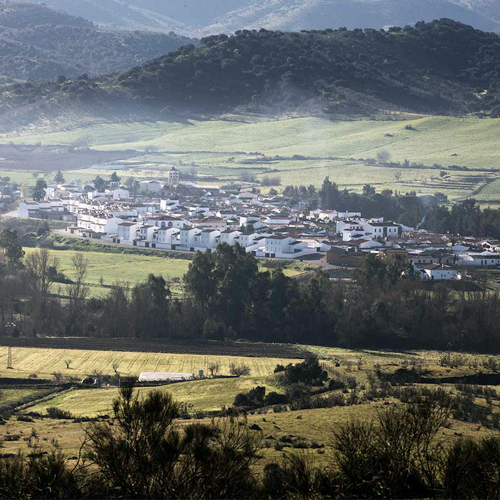La Fábrica de suelos
Implementation team
Nicolás Gutiérrez and Virginia de Jorge-Huertas (winners)
+ meat - Claire Vernhes and Adrien Picandet (runners up)
Client(s)
Junta Extremadura
Municipality of Jerez de los Caballeros
Competition Team
Claire Vernhes (FR), architect urbanist
Clara Delmond (FR), architect
Simon Portelas (FR), architect
Adrien Picandet (FR), architect
Lucille Bricks (FR), architect urbanist
Justine Caussanel (FR), architect urbanist
Camille Chastanet (FR), architect urbanist
Félicien Pecquet-Caumeil (FR), architect urbanist
Europan 14 La Bazana (ES)
runner-up
Team Point of View
“La Fabrica de Suelos” is sustained by a shared initiative based on the exchange between different actors of the territory.
Productive yet sustainable, the project renders the agricultural land more productive while diversifying the crops, enriching the soils and ecosystems.
Modest yet virtuous, very little monetary investment is needed while developing a great capacity to produce newfound riches by involving other sectors.
Rural yet precious, inspired by traditional frugal systems, it proposes to reinvent the means of implementing a production of the town that is more local and responsible.
Specific yet adaptable, it was thought out specifically for the territory of La Bazana, but can adapt to other situations and territorial contexts with similar characteristics.
Jury Point of View
While many proposals try to inject a totally new element in La Bazana in order to provoke change, this project chooses to work with the original reason of the foundation of La Bazana: the agricultural use of the land. Adapting the cultivation of the soil is put forward as a method to reactivate the territory. The model of agricultural production can evolve slowly and does not need large investments. It can go hand in hand with corresponding touristic development of the area. The proposal is appreciated as a very authentic and highly sustainable way of bringing new life in the area.
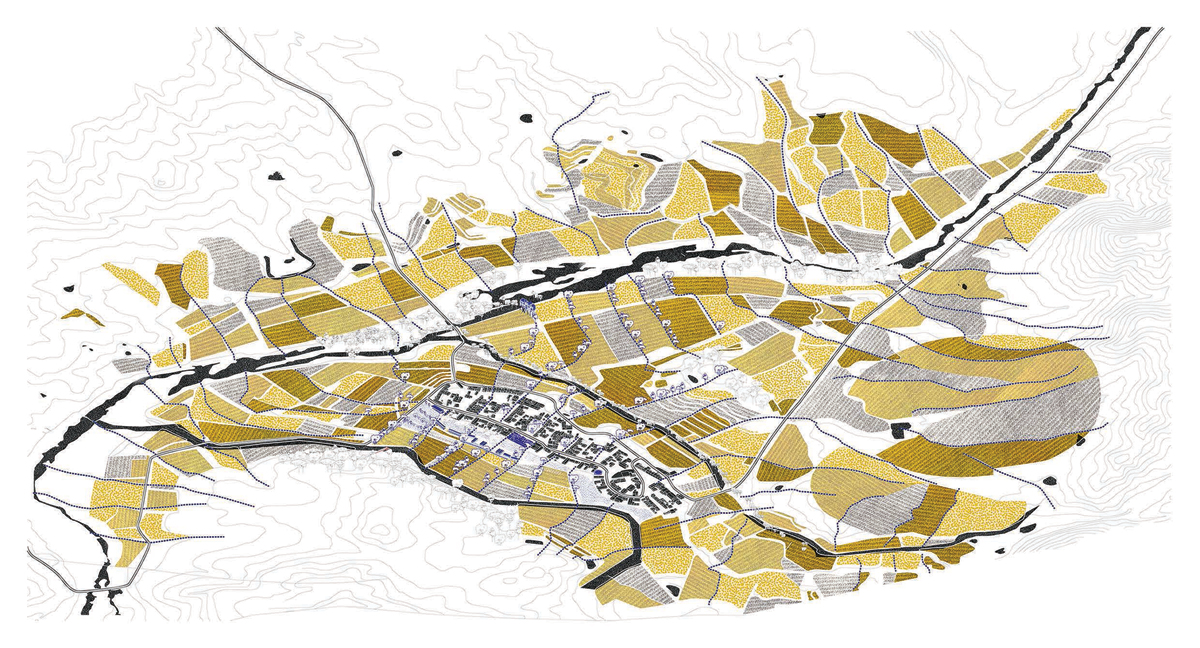
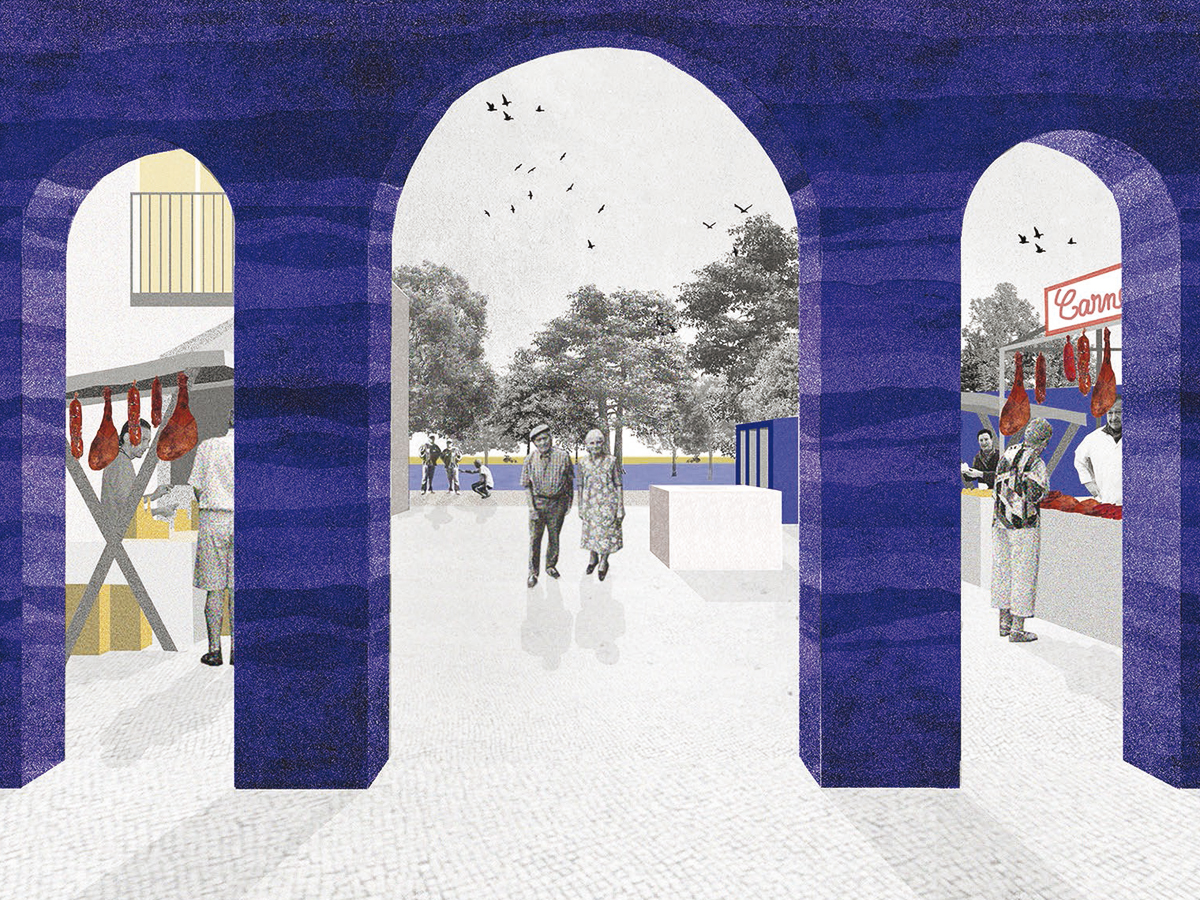
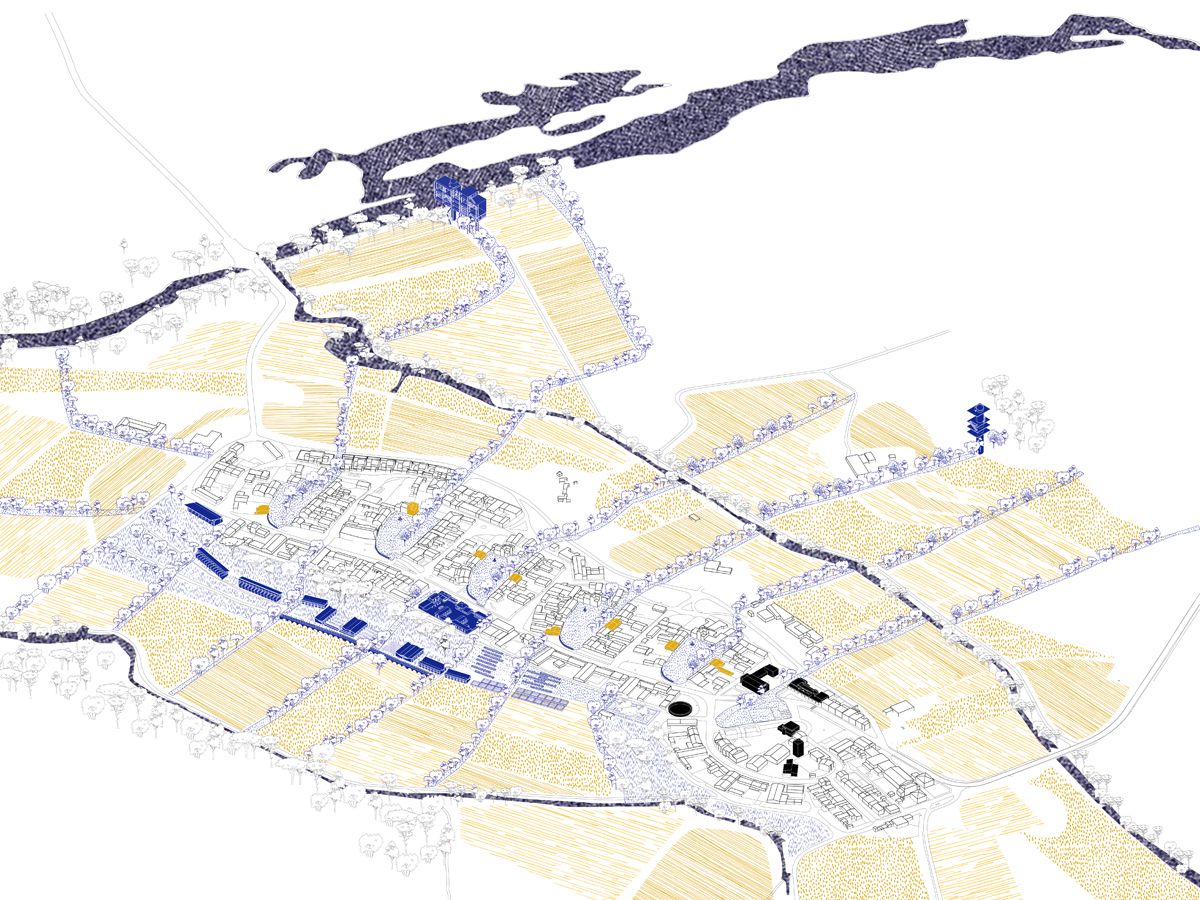



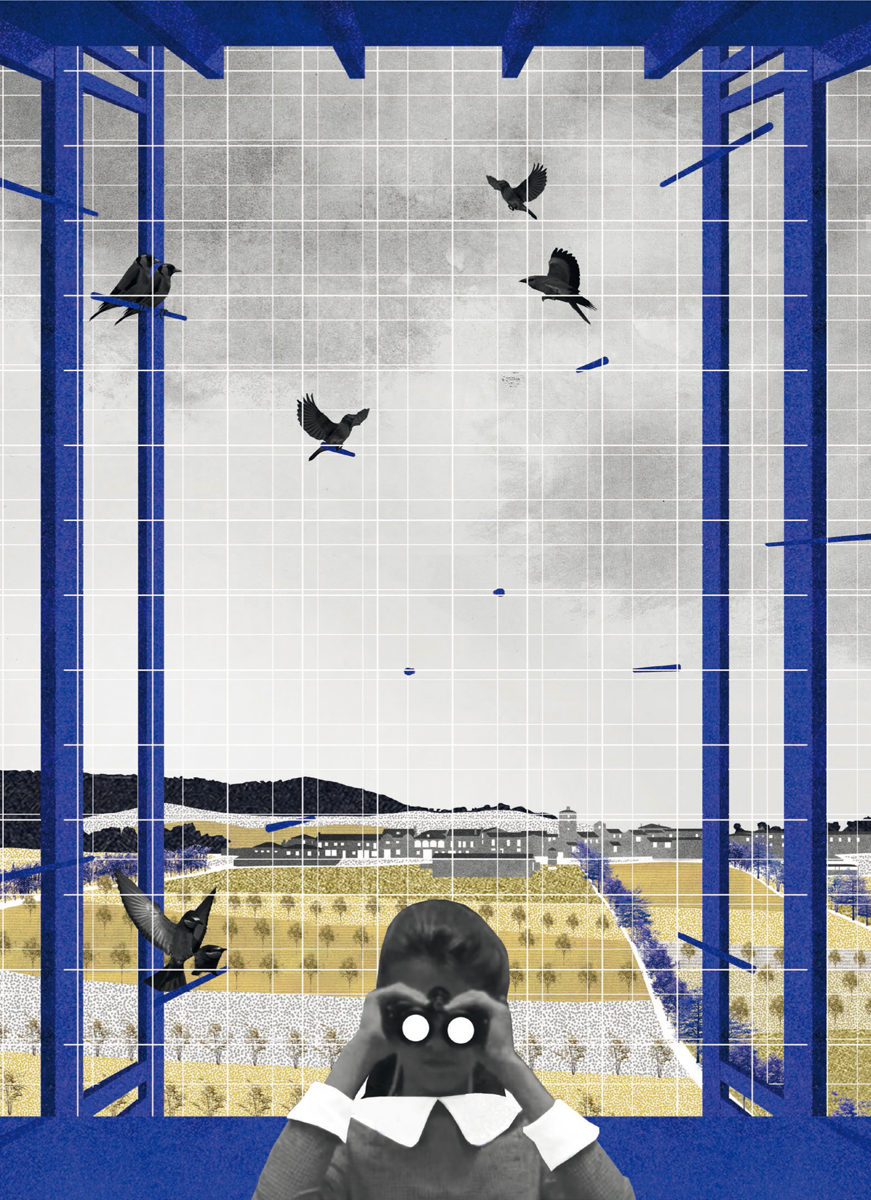
2018-2019
In March 2018, the two prize-winning teams did a research of the methodology to be developed with citizens. In order to do so, they prepared a presentation meeting of the project to the city and also to the neighbours of La Bazana. Concept ideas, references and process ideas flow together in a dynamic process, also thanks to the meeting and local knowledge with the neighbours.
Afterwards, the teams suggested starting the project process with on-site workshops.
In September 2018, the Region has therefore launched the first session of in-situ participative workshop approach with the inhabitants in a 7days-atelier. The teams lived there as a “residence”, sharing and understanding the problematics and challenges of the territory.
A second session of participative workshop took place in February 2019 enabling the establishment of a hierarchy of actions and the identification of key sites and future programs, resulting from a diagnostic assessment carried out following the first session, which could form the basis of a future master plan.
The four main project areas are as follows:
- Interventions on the Ardila River, the waterways on either side of the village, and the irrigation canals
- Connecting the village of La Bazana with the structuring waterways through landscaping features
- Interventions at the architectural level: rehabilitation/activation of key sites that form the basis of La Bazana's identity
- Training, management, and outreach; from cooperative organization to the maintenance of architectural and landscape heritage.
Following these two workshops, the teams produced specifications for the creation of a master plan for the Extremadura region, following the conclusions and recommendations made during the workshops.
The regional and municipal elections coincided in May 2019, bringing significant changes to both bodies. Then came the Covid pandemic, bringing the process to a complete halt.
